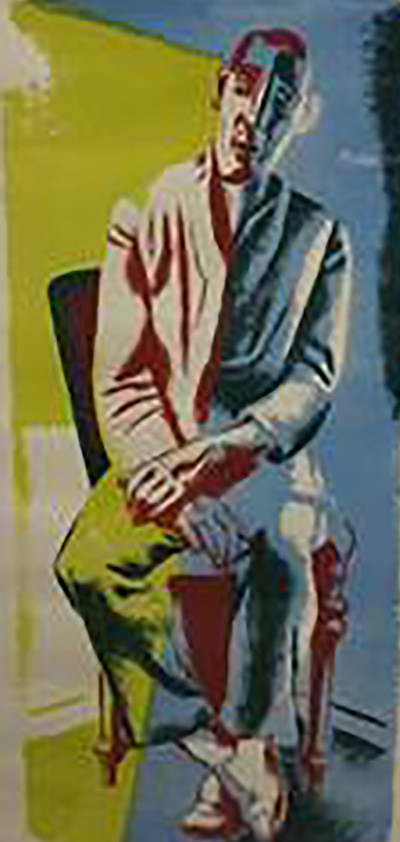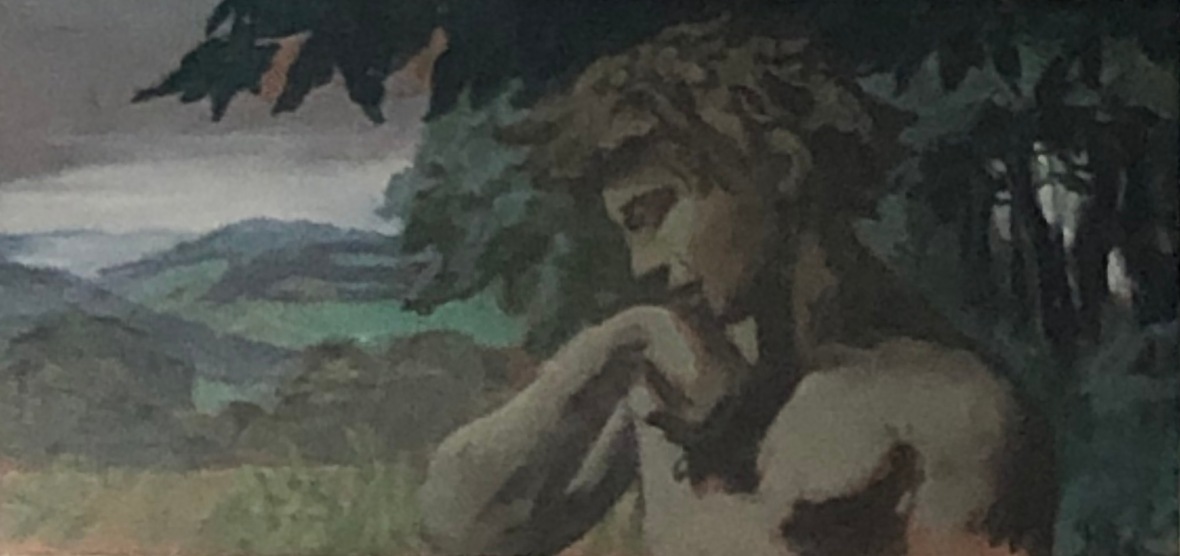Hans Feibusch leaves a legacy of work with 3 main themes: the natural world, the old and new testaments and mythology. Widely known for his mural painting, he completed over forty murals in churches, cathedrals, synagogues and public buildings.
When the Nazis came to power in 1933, the work of Hans Feibusch was banned. He escaped to Britain, becoming a British citizen in 1938. His work was included in the 1937 Degenerate Art exhibition and until his death in 1998; he was believed to be the last surviving artist whose work was shown in the famous “Entartete Kunst” exhibition. The painting 1939 relates to Feibusch’s experience as a soldier fighting on the Russian front from 1916-18. Feibusch had a brother and in 1929 he went skiing. Lutz was tragically killed in an avalanche and Feibusch had to meet the body at the train station. This experience was also much in mind when he painted 1939 his premonition of what was to come.
Pallant House Gallery has one of the most important collections of Modern British Art in the country. In 1997 the Gallery received the entire contents of Hans Feibusch’s North London studio. The studio, which had formerly been Landseer’s, was used by Feibusch from the 1930s until 1997. The Hans Feibusch collection at Pallant House Gallery includes around 80 paintings, 50 sculptures, several hundred drawings and studies, copies of all Feibusch’s lithographs (around 50 prints including proof stages), as well as the artist’s sketch books, easels, brushes, props, furniture and books – over 1,700 items in total. Pallant House Gallery also houses the Hans Feibusch Archive of photographs and ephemera. Whilst some work by Feibusch is always on show at the Gallery, to view specific items it is advisable to make an appointment. The Gallery is launching a Feibusch Loan Scheme to churches and galleries, to enable the artist’s work to be seen more widely.

Hans FEIBUSCH Seated figure

Hans FEIBUSCH Classical Landscape

Hans FEIBUSCH Untitled